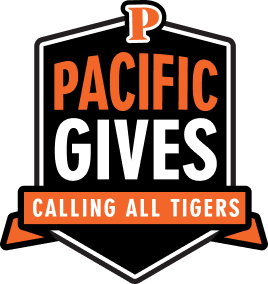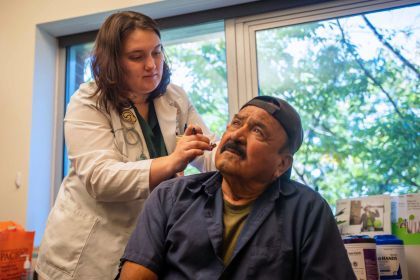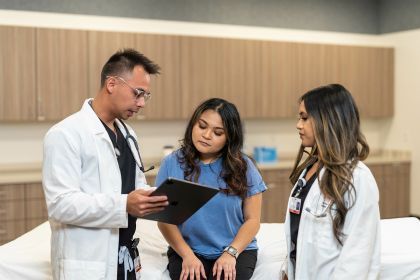Breadcrumb
Abbott Scholars ready to join the fight against diabetes

“My mom had diabetes for the longest time. I didn’t know,” Harry Ma begins.
“She kept it a secret from everybody.”
A secret until she was rushed to the hospital, her blood sugar dropping dangerously low. “That’s when I found out.”
The experience taught Ma, in his early 20s at the time, a hard lesson about diabetes. He easily could have turned away from the shock and run in the other direction.
But that’s just not who he is.
Instead, Ma dedicated himself to learning everything he could about diabetes. Now, he’s the one educating others.
His mother’s hypoglycemic event gave him purpose. A scholarship through the Abbott Fund Scholars program at University of the Pacific helped him achieve it. In May, he graduated with a master’s degree in nursing with a specialization in diabetes management, and he aims to start working in emergency care in his hometown of Stockton.
Stories like his—or Alex Marapao’s or Ana Garcia’s, two more Abbott Fund Scholars—help illustrate what it truly means to have a community of care.
Each of them has come full circle, from feelings of helplessness to leading the charge for better health outcomes in a place they love—where they grew up.
Along with more than 300 other students and alumni from the program at Pacific, they’re part of a new wave of “diabetes-smart” healthcare and social workers ready to make a difference.
Building a Stronger Pipeline
Being a nurse is both a science and an art. Science in a literal and obvious way. Art in an important but sometimes overlooked way. Alex Marapao is a student of that art: She tries to connect with the people she’s helping so that vital information, such as how they should monitor their blood glucose levels, will stick.
That said, it’s a little easier to connect when you have things in common. Marapao is from Stockton. She grew up with family members who live with diabetes. And, in addition to being in University of the Pacific’s nursing program, she spent several years as a nutrition educator at the Emergency Food Bank of Stockton.
“I have family members who had amputations due to diabetes,” she says. “Now, being in the nursing program, I can see the huge impact diabetes has. The program helped me make connections with people and be a better provider.”
That, on its own, represents a big win.
It also makes you wonder: What would happen if more nurses had that level of knowledge and specialized training? In its most recent Economic Costs of Diabetes in the U.S. report, the American Diabetes Association found that the total annual cost of diabetes in 2022 was $412.9 billion. (Separately, the World Health Organization has called attention to a global shortage of nurses that numbers in the millions.)
As Marapao puts it, equipping nurses and other healthcare workers with diabetes expertise makes the University of the Pacific program “not only unique but essential.”
Abbott Fund partnered with Pacific beginning in 2020 to build out a curriculum in diabetes education and strengthen the pipeline of homegrown healthcare workers in Stockton.
That partnership resulted in:
- The country’s first and only master’s degree program for social workers with specialization in diabetes management.
- Master's degree programs for nurses and dietitians with specialization in diabetes management.
- Certificate programs in diabetes prevention and management for frontline workers already working in the field.
When students are accepted in the Abbott Fund Scholars program, they commit to work in the local healthcare system and community for at least two years after graduation.
“During my rotations I’ve told some nurses about our blood glucose monitoring project,” says Marapao, who also graduated in May. “And every nurse always says that’s such an important topic to educate the community about.”
Story provided by The Abbott Fund






